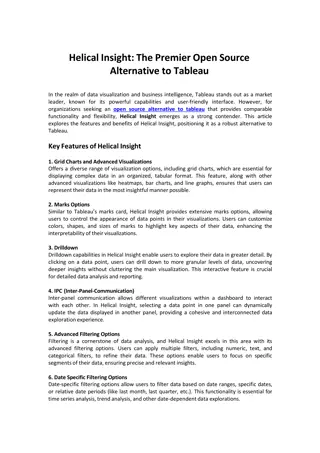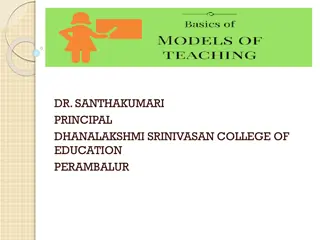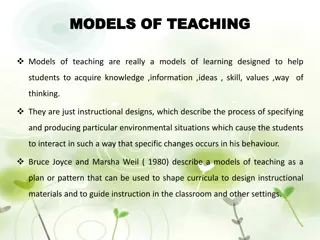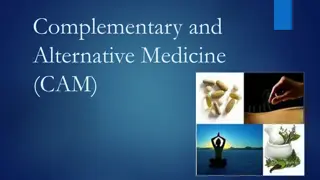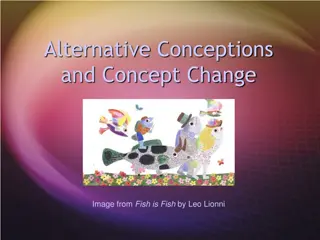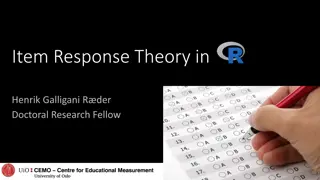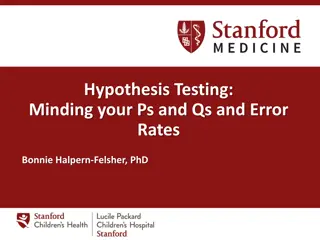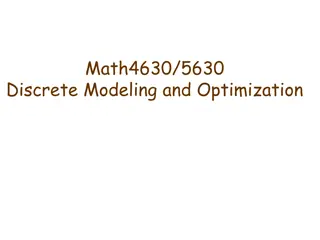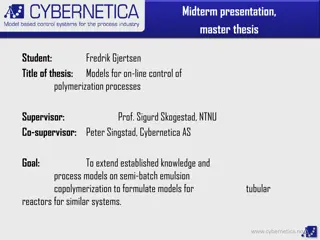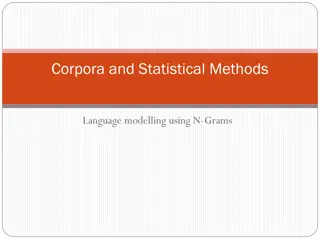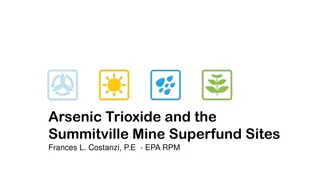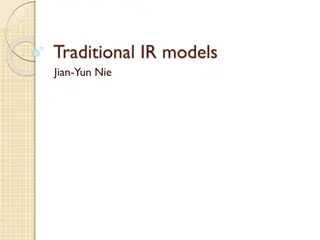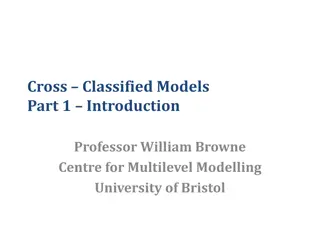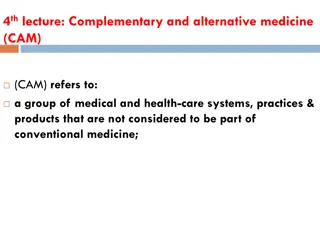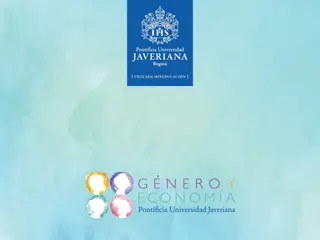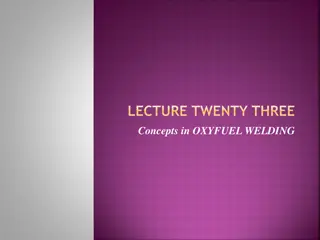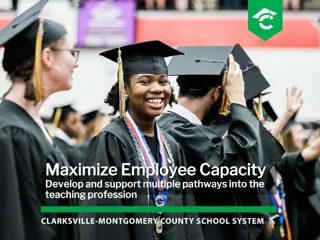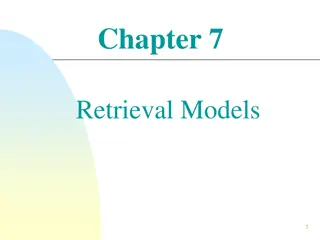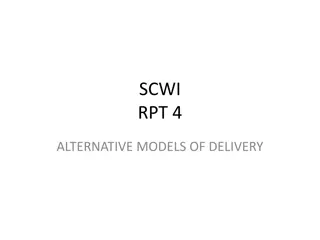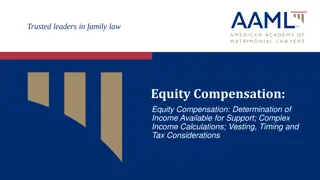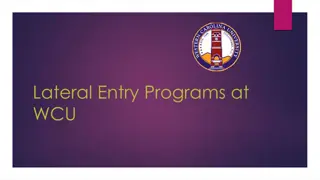Global Climate Models
Scientists simulate the climate system and project future scenarios by observing, measuring, and applying knowledge to computer models. These models represent Earth's surface and atmosphere using mathematical equations, which are converted to computer code. Supercomputers solve these equations to pr
3 views • 15 slides
System Models in Software Engineering: A Comprehensive Overview
System models play a crucial role in software engineering, aiding in understanding system functionality and communicating with customers. They include context models, behavioural models, data models, object models, and more, each offering unique perspectives on the system. Different types of system
3 views • 33 slides
Understanding Input-Output Models in Economics
Input-Output models, pioneered by Wassily Leontief, depict inter-industry relationships within an economy. These models analyze the dependencies between different sectors and have been utilized for studying agricultural production distribution, economic development planning, and impact analysis of i
8 views • 7 slides
Helical Insight an Open Source Alternative to Tableau
In the realm of data visualization and business intelligence, Tableau stands out as a market leader, known for its powerful capabilities and user-friendly interface. However, for organizations seeking an open source alternative to tableau that provides comparable functionality and flexibility, Helic
0 views • 2 slides
Understanding Models of Teaching in Education
Exploring different models of teaching, such as Carroll's model, Proctor's model, and others, that guide educational activities and environments. These models specify learning outcomes, environmental conditions, performance criteria, and more to shape effective teaching practices. Functions of teach
2 views • 20 slides
Understanding Models of Teaching for Effective Learning
Models of teaching serve as instructional designs to facilitate students in acquiring knowledge, skills, and values by creating specific learning environments. Bruce Joyce and Marsha Weil classified teaching models into four families: Information Processing Models, Personal Models, Social Interactio
1 views • 28 slides
Understanding Complementary and Alternative Medicine (CAM)
Complementary and Alternative Medicine (CAM) encompasses various treatments, ranging from herbs to yoga, that differ from traditional Western medicine. While complementary medicine involves using these therapies alongside conventional medicine, alternative medicine opts for non-mainstream approaches
2 views • 20 slides
Understanding Alternative Conceptions in Education
Students bring alternative conceptions to school, shaping their learning experiences. Examples from literature and mechanics illustrate how prior knowledge influences new understanding. Research emphasizes the significance of addressing alternative conceptions for effective science teaching.
0 views • 23 slides
Significance of Models in Agricultural Geography
Models play a crucial role in various disciplines, including agricultural geography, by offering a simplified and hypothetical representation of complex phenomena. When used correctly, models help in understanding reality and empirical investigations, but misuse can lead to dangerous outcomes. Longm
0 views • 8 slides
Understanding CGE and DSGE Models: A Comparative Analysis
Explore the similarities between Computable General Equilibrium (CGE) models and Dynamic Stochastic General Equilibrium (DSGE) models, their equilibrium concepts, and the use of descriptive equilibria in empirical modeling. Learn how CGE and DSGE models simulate the operation of commodity and factor
4 views • 15 slides
Enhancing Information Retrieval with Augmented Generation Models
Augmented generation models, such as REALM and RAG, integrate retrieval and generation tasks to improve information retrieval processes. These models leverage background knowledge and language models to enhance recall and candidate generation. REALM focuses on concatenation and retrieval operations,
1 views • 9 slides
Understanding Item Response Theory in Measurement Models
Item Response Theory (IRT) is a statistical measurement model used to describe the relationship between responses on a given item and the underlying trait being measured. It allows for indirectly measuring unobservable variables using indicators and provides advantages such as independent ability es
2 views • 32 slides
Understanding Hypothesis Testing in Statistics
Hypothesis testing is essential in scientific inquiry, involving the formulation of null and alternative hypotheses at a chosen level of significance. Statistical hypotheses focus on population characteristics and are tested on samples using probability concepts. The null hypothesis assumes no effec
0 views • 26 slides
Understanding Discrete Optimization in Mathematical Modeling
Discrete Optimization is a field of applied mathematics that uses techniques from combinatorics, graph theory, linear programming, and algorithms to solve optimization problems over discrete structures. This involves creating mathematical models, defining objective functions, decision variables, and
0 views • 12 slides
Management of Symptomatic Ear Wax in Adults: Olive Oil Drops vs. Alternative Solvents
Adults (>18 yrs) presenting with symptomatic ear wax often seek interventions like olive oil drops or alternative ear wax solvents. A study compared the efficacy of olive oil drops in conjunction with syringing versus alternative treatments or no treatment. PubMed search yielded 26 papers, with 2 re
5 views • 12 slides
Fair and Alternative Trade: A Path to Ethical Consumption
Fair Trade and Alternative Trade practices aim to create a more equitable and just global marketplace. Fair Trade focuses on fair prices and relationships for producers, while Alternative Trade emphasizes partnership and respect between producers and consumers. Through these approaches, consumers ca
0 views • 19 slides
Observational Constraints on Viable f(R) Gravity Models Analysis
Investigating f(R) gravity models by extending the Einstein-Hilbert action with an arbitrary function f(R). Conditions for viable models include positive gravitational constants, stable cosmological perturbations, asymptotic behavior towards the ΛCDM model, stability of late-time de Sitter point, a
1 views • 12 slides
Understanding Wireless Propagation Models: Challenges and Applications
Wireless propagation models play a crucial role in characterizing the wireless channel and understanding how signals are affected by environmental conditions. This article explores the different propagation mechanisms like reflection, diffraction, and scattering, along with the challenges and applic
1 views • 14 slides
Innovative Approach to Alternative Provision in Education
Presentation by Kate Watson, Partnership Project Manager, discussing Definitions of Alternative Provision (AP) as per DfE guidance and OFSTED standards. The presentation highlights the SEND and Inclusion Strategy for pupils with SEMH needs, resources developed through strategy tools, and the vision
0 views • 11 slides
Models for On-line Control of Polymerization Processes: A Thesis Presentation
This presentation delves into developing models for on-line control of polymerization processes, focusing on reactors for similar systems. The work aims to extend existing knowledge on semi-batch emulsion copolymerization models, with a goal of formulating models for tubular reactors. Strategies, ba
0 views • 16 slides
The Evolution of Alternative Fuels in Addressing Energy Security
Amid historical warnings of overdependence on foreign oil, this piece emphasizes the importance of exploring alternative fuels to ensure energy security. With a focus on real-time solutions and the potential of existing technologies, the narrative underscores the urgency of transitioning away from t
0 views • 23 slides
Understanding N-Gram Models in Language Modelling
N-gram models play a crucial role in language modelling by predicting the next word in a sequence based on the probability of previous words. This technology is used in various applications such as word prediction, speech recognition, and spelling correction. By analyzing history and probabilities,
0 views • 101 slides
Alternative Energy Integration at Superfund Sites
Consider adding alternative energy components to Superfund sites to enhance sustainability. Two examples are the Arsenic Trioxide site in North Dakota and the Summitville Mine in Colorado. The Arsenic Trioxide site remedied a widespread arsenic contamination issue by expanding a water treatment syst
0 views • 10 slides
Understanding Information Retrieval Models and Processes
Delve into the world of information retrieval models with a focus on traditional approaches, main processes like indexing and retrieval, cases of one-term and multi-term queries, and the evolution of IR models from boolean to probabilistic and vector space models. Explore the concept of IR models, r
0 views • 65 slides
Understanding Cross-Classified Models in Multilevel Modelling
Cross-classified models in multilevel modelling involve non-hierarchical data structures where entities are classified within multiple categories. These models extend traditional nested multilevel models by accounting for complex relationships among data levels. Professor William Browne from the Uni
0 views • 13 slides
Overview of Complementary and Alternative Medicine (CAM)
Complementary and Alternative Medicine (CAM) encompasses diverse medical practices, products, and systems outside conventional healthcare. CAM includes treatments like acupuncture, herbal remedies, and meditation. Epidemiological data shows widespread usage, particularly for conditions such as back
1 views • 20 slides
Understanding General Equilibrium Models and Social Accounting Matrices
General Equilibrium Models (CGE) and Social Accounting Matrices (SAM) provide a comprehensive framework for analyzing economies and policies. This analysis delves into how CGE models help simulate various economic scenarios and their link to SAM, which serves as a key data input for the models. The
0 views • 50 slides
Insights into Alternative Education and Children in Care in Bath and North East Somerset
The content provides detailed information on the Alternative Education Joint Inset Day in Bath and North East Somerset, focusing on staff training and community development for better outcomes for vulnerable children. It includes the definition of Alternative Education provision, the number of child
0 views • 15 slides
Overview of Alternative Gases and Pressure Gas Welding in Oxyfuel Welding
Alternative gases to acetylene in oxyfuel welding, such as MAPP, propane, and natural gas, offer different characteristics and applications. Pressure gas welding (PGW) is a fusion-welding process that uses oxyacetylene gas and pressure to join metal parts without filler metal. The advantages, limita
0 views • 8 slides
Addressing Teacher Shortages Through Alternative Pathways in Education
Overcoming recruitment challenges and current teacher shortages in CMCSS, Tennessee by maximizing employee capacity through various alternative pathways into the teaching profession. Initiatives like the Clarksville Teaching Fellows program and focusing on diverse representation among new hires are
1 views • 22 slides
Understanding Retrieval Models in Information Retrieval
Retrieval models play a crucial role in defining the search process, with various assumptions and ranking algorithms. Relevance, a complex concept, is central to these models, though subject to disagreement. An overview of different retrieval models like Boolean, Vector Space, and Probabilistic Mode
0 views • 56 slides
Exploring Alternative Models of Delivery in Rural College Campuses
This report discusses various alternative models of delivery for programs in college campuses located in Moosonee, Timmins, Kirkland Lake, Haileybury, covering communities and programming, SCWI programming, specialized programs, and activities such as the R.A.F.T program. It highlights collaboration
0 views • 40 slides
Understanding Scientific Models and Their Applications
Explore the world of scientific models through this informative content covering physical, mathematical, and conceptual models. Discover why models are used in science, their types, and potential limitations. Delve into the importance of utilizing models to comprehend complex concepts effectively.
0 views • 21 slides
Understanding Alternative Investments and Equity Compensation
Explore the world of alternative investments including private equity, venture capital, and hedge funds with a focus on equity compensation. Learn about complex income calculations, vesting, timing, and tax considerations. Discover how these unconventional assets with high return potential differ fr
0 views • 61 slides
Understanding Composite Models in Building Complex Systems
Composite models are essential in representing complex entities by combining different types of models, such as resource allocation, transport, and assembly models. Gluing these models together allows for a comprehensive representation of systems like the milk industry, where raw materials are trans
0 views • 27 slides
Alternative Cellular Avalanche Model for Solar Flares
Exploring an alternative cellular avalanche model based on the maximum release of energy during solar flares, this research delves into optimizing models to study the quasi-static evolution of coronal magnetic fields. Through a series of image objects and studies, the study presents various cellular
0 views • 16 slides
WCU Alternative Licensure Programs and Pathways
Explore Western Carolina University's alternative licensure programs for lateral entry teachers, including coursework requirements, Praxis exam preparation, options for university affiliation or Regional Alternative Licensing Center (RALC), and the opportunity to pursue additional certifications pos
0 views • 10 slides
Alternative Certification Program for School Districts in West Virginia
West Virginia Association of School Human Resource Officials discussed the implementation of Alternative Certification (AC) programs for school districts facing critical teacher shortages. The process involves applying for an Alternative Teaching Certificate, commitment to program requirements, and
0 views • 23 slides
Exploring High-Purity Niobium: Industrialization, Alternative Production Methods, and Strategic Collaboration
Delve into the realm of high-purity niobium with a focus on industrialization, alternative production techniques, and strategic partnerships. Discover insights on quality assurance, stable production, and planning reliability for Nb RRR products. Learn about Heraeus and Plansee, key players in the i
0 views • 17 slides
Housing Standards Update: Melcombe Regis Selective Licensing and Alternative Proposal
Housing Standards Service Manager Richard Conway provides an update on the progress of the Melcombe Regis Selective Licensing initiative and explores an alternative proposal involving voluntary landlord accreditation and targeted enforcement to improve housing standards. The Executive Advisory Panel
0 views • 7 slides



